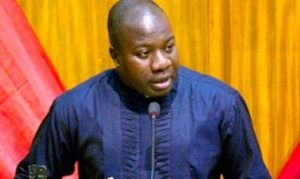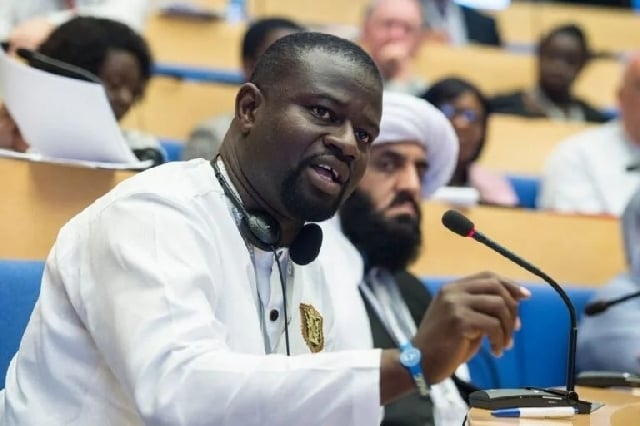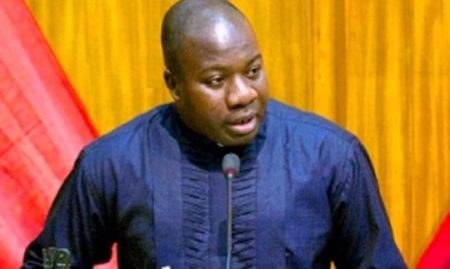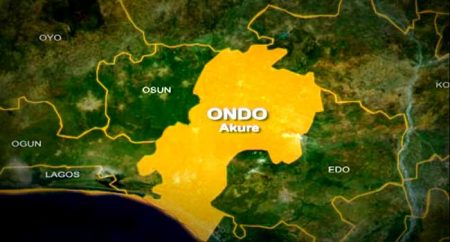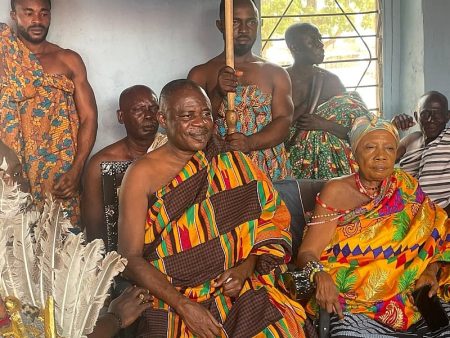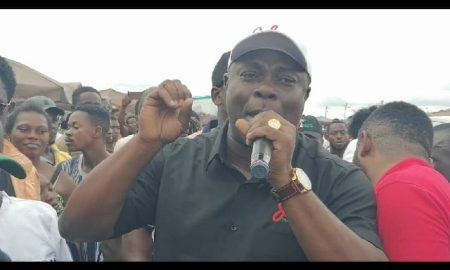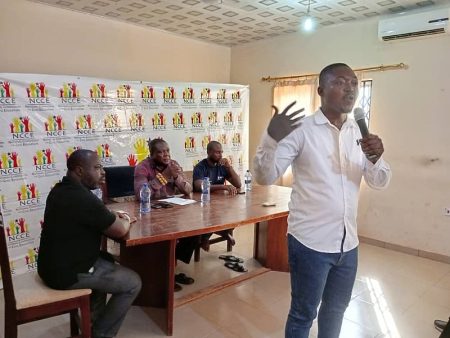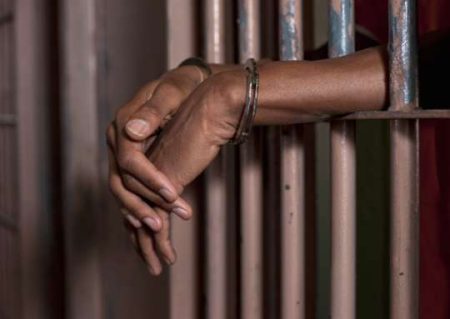Frank Annoh-Dompreh, the Majority Chief Whip and Member of Parliament for Nsawam-Adoagyiri, has publicly criticized Alban Sumana Kingsford Bagbin, the current Speaker of Parliament, labeling him as the “worst Speaker” in the history of Ghana’s Fourth Republic. His criticism stems from what he perceives as Bagbin’s biased support for the opposition party, the National Democratic Congress (NDC), which he believes undermines the impartiality expected of the Speaker’s role. Annoh-Dompreh also pointed to Bagbin’s alleged disregard for Supreme Court rulings as further evidence of his ineffective leadership, framing these issues as detrimental to Bagbin’s legacy.
Annoh-Dompreh made these remarks during a recent election-related event, where he inaugurated a new party office in his constituency while engaging with constituents through a so-called Victory Walk. This initiative not only aims to showcase the New Patriotic Party’s (NPP) commitment to the upcoming elections but also seeks to reinforce their position within the constituency. His statements clearly reflect the NPP’s strategy for countering claims of opposition bias within the parliament, asserting that they respect the role of the Speaker but will not stand down from their positions or allow themselves to be intimidated by him or the NDC.
The Majority Chief Whip’s criticism represents broader discontent within the NPP regarding the Speaker’s actions and decisions. Annoh-Dompreh’s assertions highlight tensions that often manifest in Ghana’s parliament, particularly surrounding perceived partisanship and the expected neutrality of the Speaker. By calling out Bagbin, he aims to galvanize his party’s supporters and reaffirm the NPP’s determination to present a united front against what they view as unfair practices that could undermine the legislative process.
Despite the intense rhetoric, Annoh-Dompreh emphasized the resilience of the NPP, declaring, “We have a tough skin,” which underscores the party’s determination to persevere despite external pressures or criticisms. Such statements are indicative of the NPP’s broader strategy in maintaining morale and solidarity among its members in the face of opposition and challenges posed by the current political climate in Ghana. His remarks serve to fortify the party’s position against what they consider to be unjust actions taken by Bagbin, thus rallying the party base ahead of the crucial elections.
Additionally, Annoh-Dompreh’s comments may reflect a strategic maneuver to draw attention to the party’s narrative as they prepare for the elections. By articulating strong criticisms against the Speaker, he aims to influence public perception not only of Bagbin but also of the NDC as a whole, positioning the NPP as a party that stands firm against perceived injustices. Such tactics are often employed in political campaigns to solidify party loyalty and draw distinctions between political rivals, fostering a sense of urgency and action among supporters.
In summary, Annoh-Dompreh’s scathing denunciation of Speaker Bagbin is more than just a personal critique; it encapsulates the ongoing political struggle between the ruling NPP and the opposition NDC within the Ghanaian parliament. His remarks highlight issues of perceived bias and disregard for judicial authority, which he believes will tarnish Bagbin’s legacy. By reaffirming the NPP’s determination to remain resolute and united in their electoral ambitions, Annoh-Dompreh seeks not only to motivate party supporters but also to shape the broader narrative of the political landscape as the elections approach.


